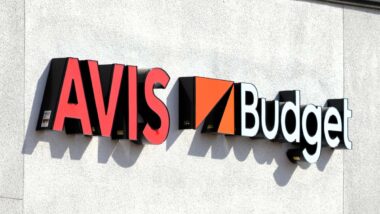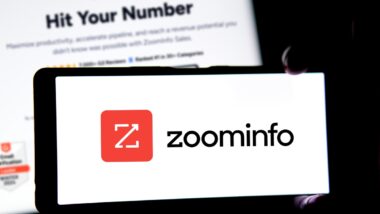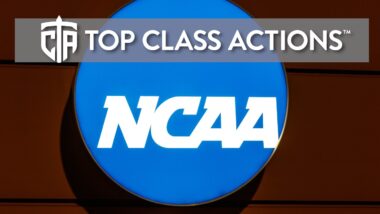Charged unfair NSF fees by your bank?

- Do you believe that Navy Federal Credit Union has charged you an unlawful or unfair insufficient funds fee (also known as a Returned Item Fee)?
- Fill out the form on this page to receive a free claim review.
Did your payment bounce? Did Navy Federal Credit Union take advantage of your sparse account to charge you even more for your mistake via insufficient funds fees?
Charging more for having less is, in fact, legal. A bank or credit union may charge account holders what is known as a non-sufficient funds fee (NSF fee) if a customer attempts to make a purchase or cover a check using an account that does not have enough money to cover the cost.
After rejecting the charge, the bank may charge the account holder an NSF fee ranging between $27 and $39.
Some customers have argued, however, that their banks have charged them multiple NSF fees, or an overdraft fee following an NSF fee, as a result of a single rejected translation. This can sometimes happen if an automatic payment that was rejected is resubmitted, including on Navy Federal Credit Union accounts.
The alleged practice caused the Federal Deposit Insurance Corp. (FDIC) to warn FDIC-registered banks in August 2022 not to charge multiple NSF fees on a single transaction and issue new guidance on the matter.
The amount of money the banks make on such charges is going down but still totaled $7.7 billion in 2022, according to the Consumer Financial Protection Bureau (CFPB).
Navy Federal Credit Union may not have heard the message.
While NSF fees hurt consumer pocketbooks, the punitive charges achieve the opposite for banks and credit unions like Navy Federal Credit Union. Financial institutions rely on the NSF fees — in addition to other charges like overdraft fees — as a significant source of revenue.
In 2019 alone, the CFPB reported, banks and credit unions raked in around $15.47 billion from NSF and overdraft fees. That amount would ultimately dip by 26% during the COVID-19 pandemic, however, according to Experian.
Do you qualify?
If you believe that Navy Federal Credit Union unfairly charged you an NSF fee, you may qualify to join the free Navy Federal Credit Union NSF Fee class action lawsuit investigation.
Fill out the form on this page for more information.
What is an NSF fee charge?
A non-sufficient fund fee may also be called an insufficient funds fee or returned item fee. No matter the name, Navy Federal Credit Union may charge the fees in the event a transaction is attempted using an account that does not have funds necessary to complete the purchase.
NSF fees may sometimes be confused with overdraft fees, another common charge banks assess in the event a transaction is attempted using a card that links to an account without necessary funds but differs in that the purchase is allowed to go through because of overdraft protection. In this case, the bank or financial institution will cover the charge in the short term while assessing the account holder the cost of the purchase and a service fee for allowing the transaction to be completed.
Bank account holders have filed a number of lawsuits revolving around overdraft fees, with consumers arguing the overdraft fees they are assessed are either too expensive or confusing.
On the bright side for consumers, a bank won’t usually charge an NSF fee and overdraft fee at the same time; however, some account holders have reported being charged both fees on the same transaction, including at Navy Federal Credit Union.
While it is technically not against the law to charge insufficient funds fees or returned item fees, customers argue the practice is being abused by financial institutions like Navy Federal Credit Union. Customers claim banks have tried to charge bank accounts repeatedly for the same transaction, ultimately causing consumers to have to pay multiple returned item fees.
Read more >> Are you being charged unfair NSF fees?
Is it possible to get a refund after being assessed an NSF fee?
A consumer may be able to get a refund after being charged an NSF fee by contacting the bank directly and explaining the specific situation. Banks do not want to create bad faith with customers and, more often than not, are willing to compromise and amend the situation.
Ultimately, as a consumer, it is ideal to be able to avoid being assessed an NSF fee in the first place, rather than having to go through the process of negotiating for a refund.
What lawsuits over NSF fees have been filed?
A number of complaints have been filed against banks over claims revolving around NSF fee charges.
In 2018, a Bank of America customer argued the financial institution charged her two $35 NSF fees for a single transaction, before ultimately covering the purchase and assessing her an additional $35 overdraft fee. In a similar situation, a customer was charged $115 in NSF fees for a $20 charge that was resubmitted several times.
Complaints about NSF fees have also been filed against Capital One, Digital Federal Credit Union, TD Bank,First Interstate Bank and Zions.
The lawsuits have also led to several settlement agreements, including one made by Ent Credit Union in 2019 and a $41 million settlement made by TD Bank in April 2022.
Others simply stopped charging the fees, including:
- Capital One 360 Checking Account
- Bank of America
- Wells Fargo
- Ally Bank Spending Account
- Discover Cashback Debit Account
- Axos Bank Rewards Checking
- Betterment Checking
- Wealthfront Cash Account
- Alliant Credit Union High-Rate Checking
- Fidelity
- Discover Bank
- Citi
Read more >> How many NSF Fees can a bank charge?
Navy Federal Credit Union NSF Fee class action lawsuit investigation
If you believe that Navy Federal Credit Union charged you unfair insufficient funds fees, you may qualify to join the NSF fees class action lawsuit investigation.
Please fill out the form on this page to see if you qualify for a FREE case evaluation.
See If You Qualify
Join the Navy Federal Credit Union NSF Fee class action lawsuit investigation
By submitting your information, you agree to receive communications from Top Class Actions and to be contacted by an attorney or law firm or their agents to discuss the details of your potential case at no charge to you if you qualify.
After you fill out the form, the attorneys who work with Top Class Actions may contact you to discuss your legal rights.
ATTORNEY ADVERTISING
The choice of a lawyer is an important decision and should not be based solely on advertisements.
PAID ATTORNEY ADVERTISEMENT: THIS WEB PAGE IS AN ADVERTISEMENT AND THE PARTICIPATING ATTORNEY(S) ARE INCLUDED BECAUSE THEY PAY AN ADVERTISING FEE. Top Class Actions is not a law firm, lawyer referral service, or prepaid legal services plan. We do not endorse or recommend any third-party claims processing company, lawyer, or law firm who participates in the network. We do not make any representation, and have not made any judgment, as to the qualifications, expertise, or credentials of any participating lawyer or processing group. No representation is made that the quality of the legal services or claims processing to be performed is greater than the quality of legal services or claims processing performed by other lawyers or claims processing group. The information contained herein is not legal advice. Any information you submit to Top Class Actions does not create an attorney-client relationship and may not be protected by attorney-client privilege because Top Class Actions is not a law firm. Instead, your information will be forwarded to an attorney(s) or their agent(s) or a claims processing firm for the purpose of a confidential review and potential representation if you qualify. You will only be contacted by an attorney(s) or their agent(s) in response to your inquiry if your initial information appears to qualify you for representation. If you are not contacted by an attorney(s) or their agent(s) within one week, you should consult another firm since all legal claims are subject to filing deadlines. All photos on this website are stock art and do not depict clients.












